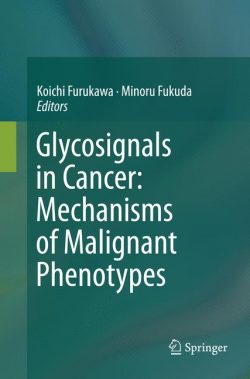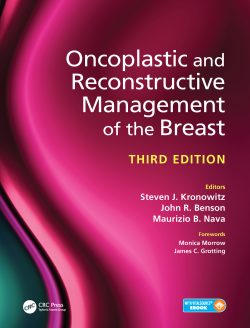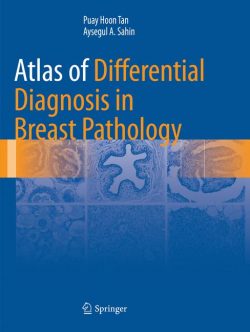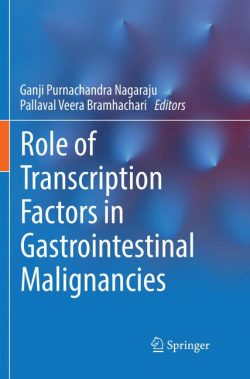This comprehensive reference expounds the current state of hormone therapy and castration resistance of prostate cancer (PCa). Previously, the incidence of PCa in Asian countries was relatively low, but it has been increasing dramatically in recent years. Although most of the new cases are diagnosed in early stages, a significant proportion of patients receive hormone therapy for metastatic disease or for relapse after local treatment. Thus the situation has gradually changed toward earlier and longer use of hormone therapy. The malignancy finally forms castration-resistant prostate cancer (CRPC) despite the lack of testicular androgen. With advances in understanding of the molecular basis of hormone dependence and CRPC, many new androgen receptor-targeted agents have emerged.
During the last decade, much evidence on hormone therapy has been accumulated in Japan. Interestingly, some of these findings are different from those reported from Western countries, suggesting ethnic variation in the outcome of hormone therapy. In the chapters of this book, expert authors provide exhaustive interpretations of the evidence recently reported from Japan and provide important Asian perspectives on hormone therapy for PCa. This work benefits not only Asian urologists but also their Western counterparts and all physicians and medical personnel who are involved in the treatment of PCa.
1. Introduction.- 2. Recent trends in hormone therapy for prostate cancer in Japan.- 3. Risk assessment among patients receiving primary ADT.- 4. Patient-derived xenografts for research on hormonal therapy of prostate cancer.- 5. Impact of GnRH antagonist and LHRH agonist on the gonadal axis.- 6. Controversies on complete androgen blockade.- 7. Adrenal androgen in prostate cancer.- 8. Intermittent ADT for prostate cancer.- 9. Pognostic significance of monitoring serum testosterone in primary ADT.- 10. Ethnic variation in clinical outcomes of primary ADT for prostate cancer.- 11. ADT in combination with radical prostatectomy.- 12. ADT in combination with radiation therapy.- 13. ADT as salvage therapy after definitive treatment.- 14. ADT for clinically localised prostate cancer.- 15. Complications of ADT.- 16. Hot flash.- 17. Oseteoporosis and fracture risk.- 18. Metaboplic change.- 19. Bone scan index as a biomarker of bone metastasis.- 20. Genetic polymorphism analysis in predicting prognosis of metastatic prostate cancer.- 21. Local therapy in combination with ADT for metastatic prostate cancer.- 22. Oxidative stress and CRPC.- 23. Alternative antiandrogen therapy for CRPC.- 24. Optimization of sequential AR targeted therapy for CRPC.- 25. Enzalutamide therapy for mCRPC in Japanese men.- 26. Abiraterone acetate therapy for mCRPC in Japanese men.- 27. Role of estramustine phosphate for CRPC.- 28. Steroid therapy for CRPC.- 29. MicroRNA analysis in prostate cancer.- 30. AR splicing variant in prostate cancer.- 31. Detection of CTC in CRPC.- 32. New biomarker for CRPC: Glycobiologic perspective.- 33. Bone-tageted treatment in CRPC management.- 34. Skeletal complications in CRPC patients.- 35. Urological complications in men dying from prostate cancer.- 36. Prediction of optimal docetaxel regimen for patients with mCRPC.- 37. Intermittent chemotherapy with decetaxel for mCRPC.- 38. Chemotherapy with cabazitaxel for mCRPC in Japanese men.- 39. New tageted approach to CRPC.- 40. Molecular basis of neuroendocrine prostate cancer.- 41. Gene therapy for prostate cancer.- 42. Immune therapy for CRPC.- 43. New approach to CRPC using inactivated virus.- 44. Patient-reported outcome in the management of CRPC.
“This is a comprehensive review of the use of androgen deprivation as treatment for men with prostate cancer. … This is a high quality review of the use of ADT in prostate cancer treatment and is a useful resource for any physician or practitioner interested in understanding the use of ADT in men with prostate cancer.” (James R. Mark, Doody’s Book Reviews, December 7, 2018)
Dr. Yoichi Arai,
Professor and Chairman,
Department of Urology,
Tohoku University School of Medicine
Dr. Osamu Ogawa,
Professor and Chairman,
Department of Urology,
Kyoto University Graduate School of Medicine
This comprehensive reference expounds the current state of hormone therapy and castration resistance of prostate cancer (PCa). Previously, the incidence of PCa in Asian countries was relatively low, but it has been increasing dramatically in recent years. Although most of the new cases are diagnosed in early stages, a significant proportion of patients receive hormone therapy for metastatic disease or for relapse after local treatment. Thus the situation has gradually changed toward earlier and longer use of hormone therapy. The malignancy finally forms castration-resistant prostate cancer (CRPC) despite the lack of testicular androgen. With advances in understanding of the molecular basis of hormone dependence and CRPC, many new androgen receptor-targeted agents have emerged.
During the last decade, much evidence on hormone therapy has been accumulated in Japan. Interestingly, some of these findings are different from those reported from Western countries, suggesting ethnic variation in the outcome of hormone therapy. In the chapters of this book, expert authors provide exhaustive interpretations of the evidence recently reported from Japan and provide important Asian perspectives on hormone therapy for PCa. This work benefits not only Asian urologists but also their Western counterparts and all physicians and medical personnel who are involved in the treatment of PCa.
Elucidates the current status of hormone therapy for prostate cancer
Clarifies the differences between the evidence from Japan and that from Western countries on hormone therapy for prostate cancer
Broadens the reader’s understanding of castration-resistant prostate cancer
Elucidates the current status of hormone therapy for prostate cancer
Clarifies the differences between the evidence from Japan and that from Western countries on hormone therapy for prostate cancer
Broadens the reader’s understanding of castration-resistant prostate cancer





